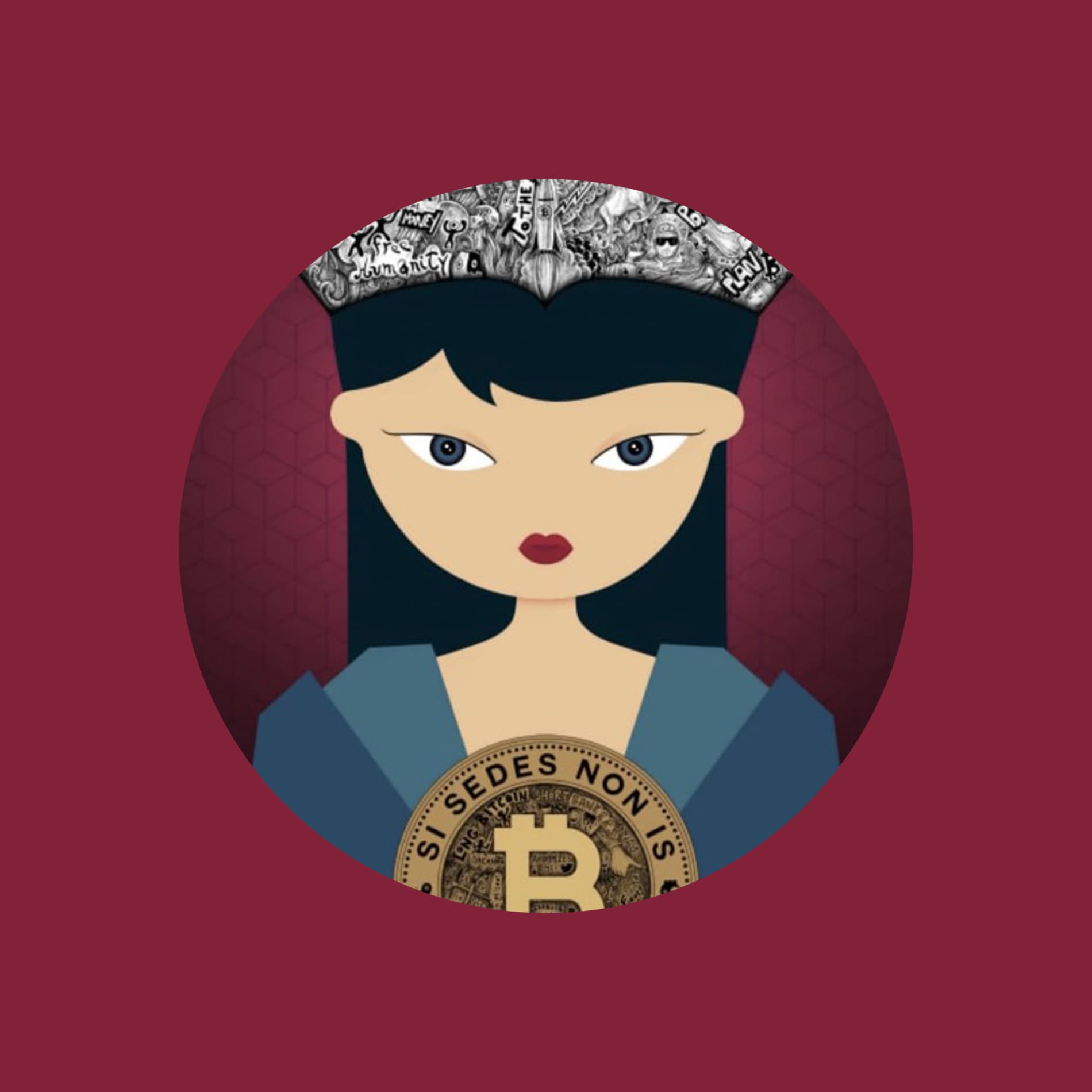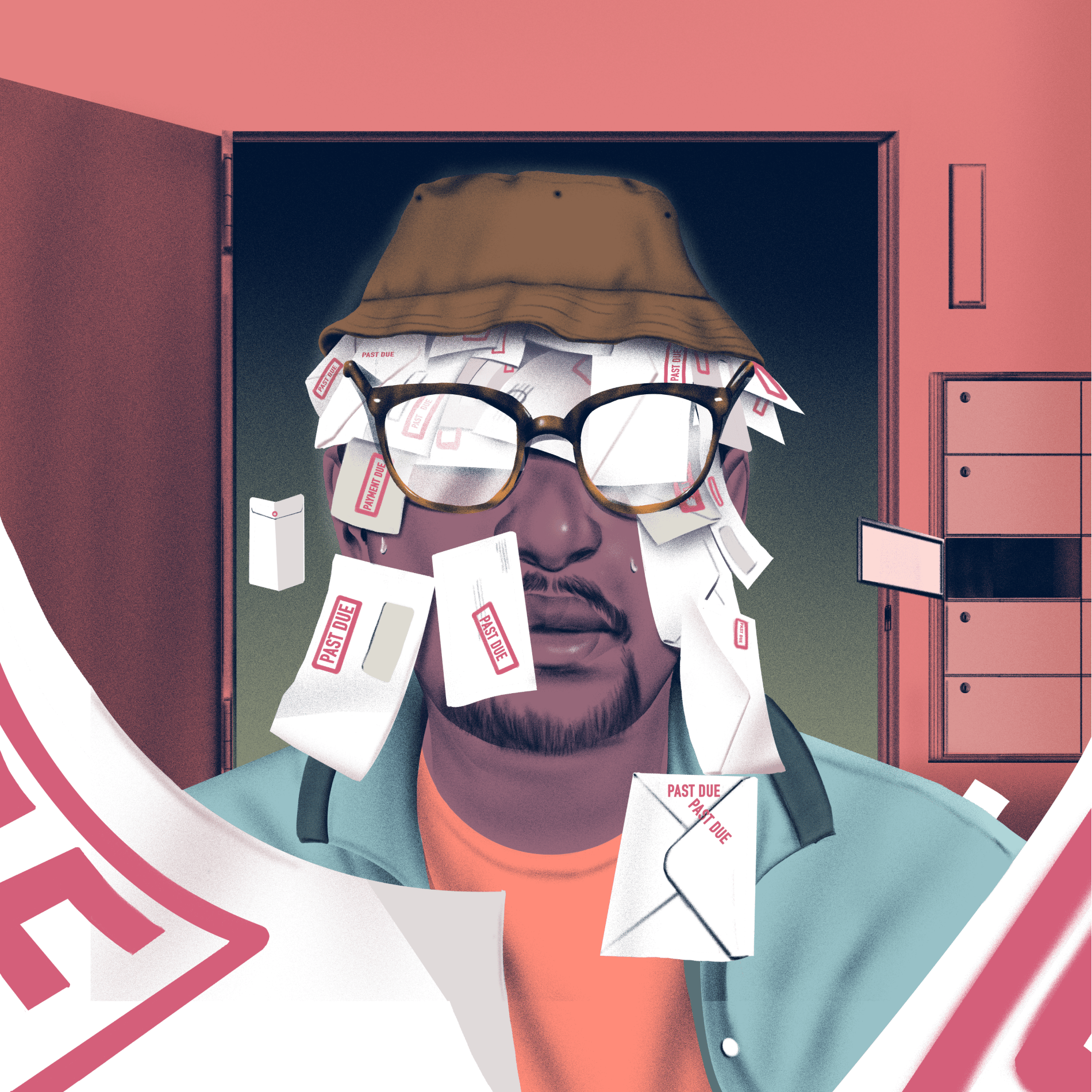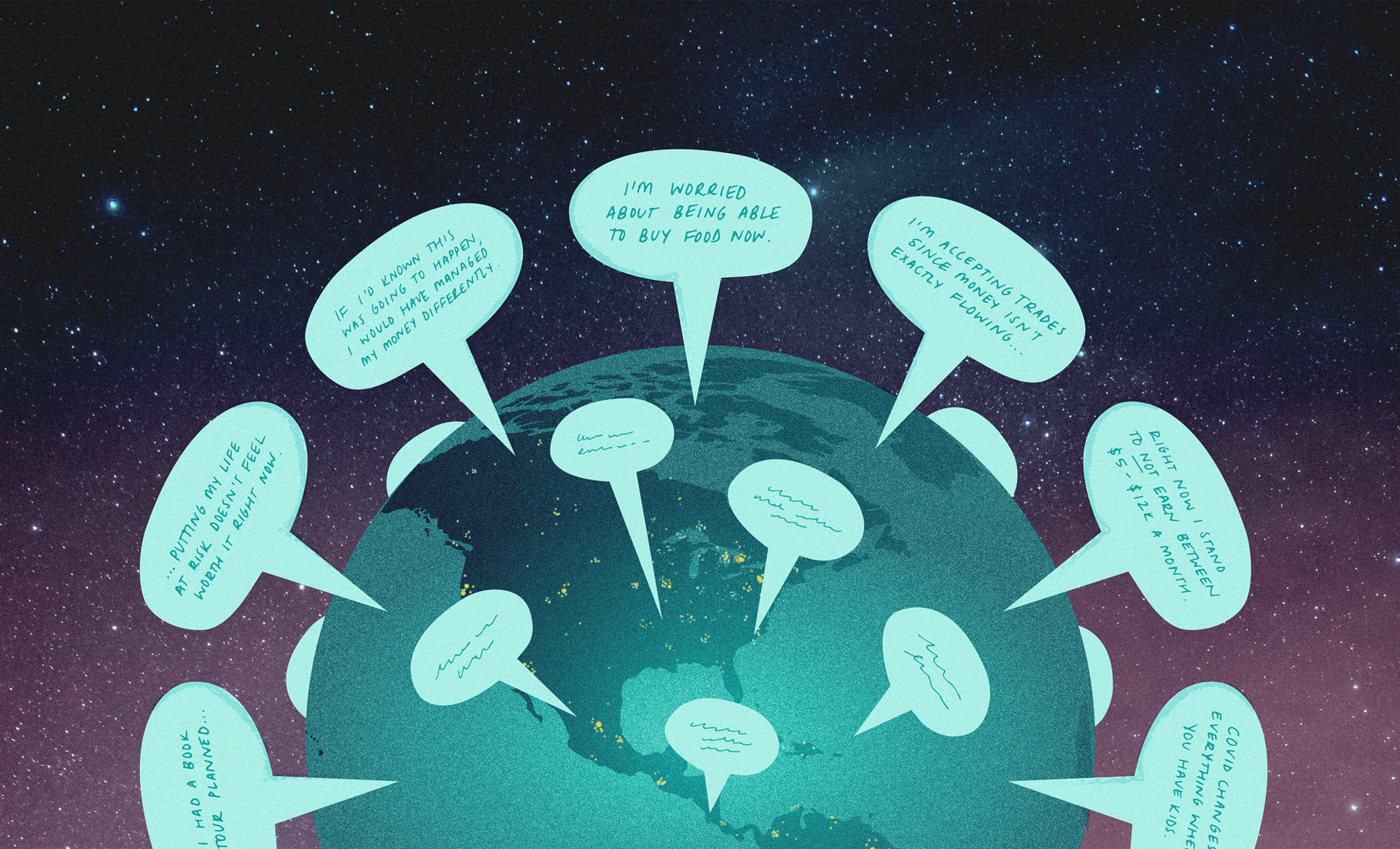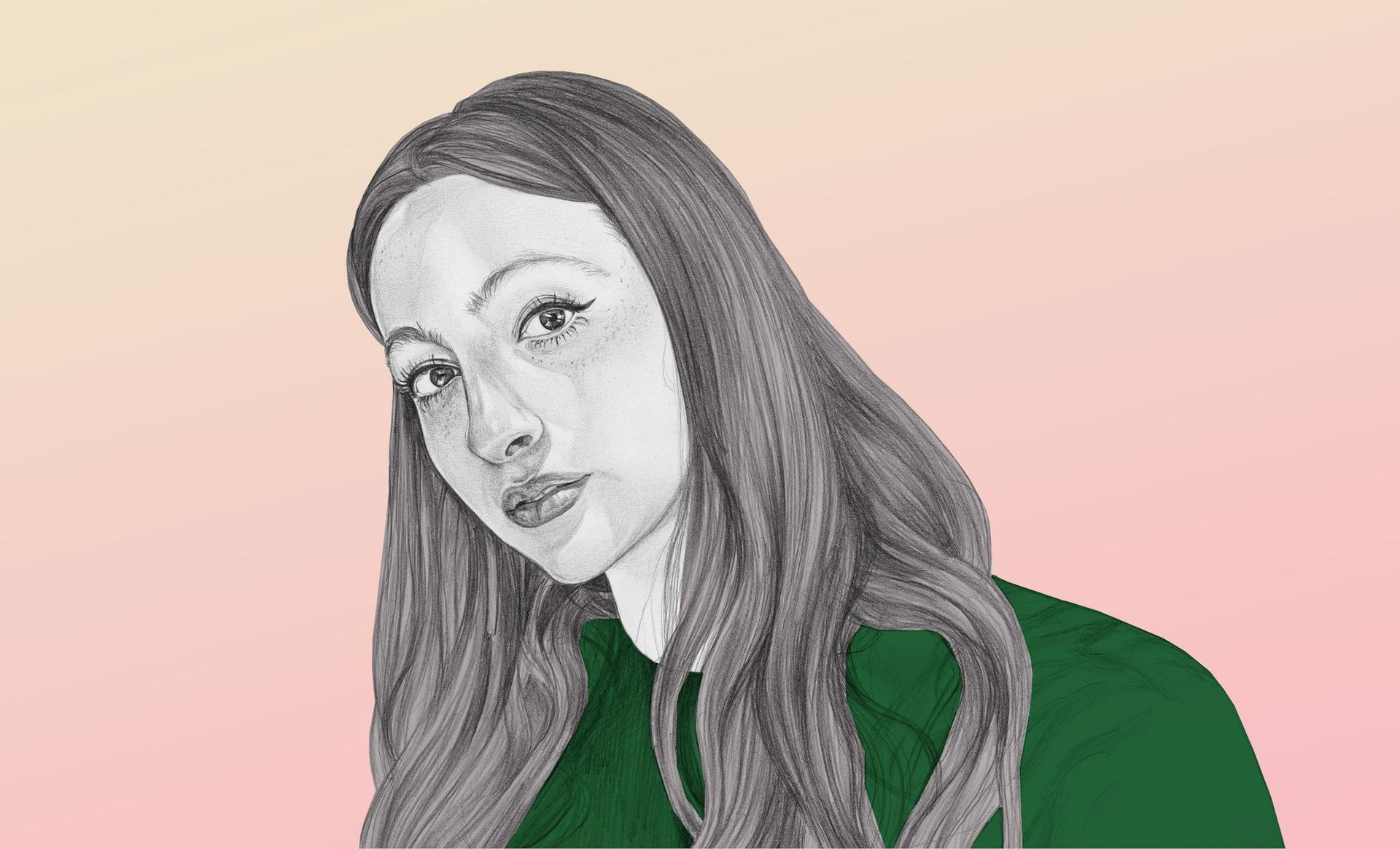
Money Diaries
Cult Animator Carson Mell Decided Making Stuff Was More Important than College
The maker of the underground hit “Chonto,” writer on “Silicon Valley,” and author of "Cherry on Top" took a circuitous route to Hollywood success. A route that ran through the grocery store deli counter.
Wealthsimple makes powerful financial tools to help you grow and manage your money. Learn more
Wealthsimple makes powerful financial tools to help you grow and manage your money. In “Money Diaries,” we feature interesting people telling their financial life stories in their own words. Carson Mell’s newest book, Cherry On Top, is available from Audible here.
I grew up in Phoenix, Arizona, where my mom was a nurse and my dad was an artist who painted desert landscapes. At 14, I got a job scooping ice cream at a Baskin-Robbins, making $6.50 an hour. I was a movie and TV buff, and I spent my time behind the counter dreaming up ideas for my own movies and TV shows. Next door was a lesbian bar called Ain’t Nobody’s Biz. I would actually pitch my ideas to the tipsy women who found their way in front of me for a sundae sometimes. They were always encouraging.
At 22, I dropped out of college and moved to Los Angeles. I knew I wanted to work in film and TV and be a writer and director — and I knew L.A. was the place to do it. In the early 2000s, L.A. was a nice, cheap place to live as an artist. At first, I worked 80-hour weeks as a runner, delivering VHS tapes from commercial agencies to their clients. But after a few months, I’d saved up some money and I made a decision: I’d quit my job and live as simple and frugal a lifestyle as I could, so that I could invest my time and energy in my own work.
I had my own small apartment and paid $700 a month for it. I found that beyond rent, I could get by on 15 bucks a day. A nearby taco place had a $2.75 special for huevos rancheros — I ate there every single day. While I prided myself on throwing myself into my art instead of filling my days working mundane jobs, I learned quickly that meant becoming a cheap bastard.
I was single then. If I met someone and went on a date, I might pick her up to go to dinner or a movie, and instead of parking in the parking garage, I’d park three blocks away — even if it was raining — to save a few bucks. Instead of taking someone for a drink at the bar, I’d invite them over for a bottle of Two-Buck Chuck, which is wine from Trader Joe’s that costs $1.99. Surprisingly, these first dates never seemed to lead to a second date. To be fair, it’s probably more because I was weird and insecure than because I was so cheap. But it didn’t help.
I had an old car that got me around but was nothing flashy. And I had the bare minimum car insurance; if my car had been stolen, it would’ve just been gone. I was also fastidious about being a careful driver, because I knew that even one speeding ticket could jack my insurance rates, which I couldn’t afford. My advice for people in their 20s is not to spend money on anything you don’t need. If you drive really well — and don’t drive drunk — you can keep your insurance rates low.

Sign up for our weekly non-boring newsletter about money, markets, and more.
By providing your email, you are consenting to receive communications from Wealthsimple Media Inc. Visit our Privacy Policy for more info, or contact us at privacy@wealthsimple.com or 80 Spadina Ave., Toronto, ON.
I started making short films with my friends — we’d have an idea in the morning, shoot all day, edit all night, and have something finished in 24 hours. They were pretty jank, I’ll admit, but instead of dropping tens of thousands of dollars on film school, I was learning how to write and make films just by doing it. At some point, though, all of my friends got sick of acting in my films and working on them for free, since I didn’t have the money to pay anyone. That’s when I got into making cartoons, since I could do that myself with paper, pens, and a computer.
I made a short animated film called "The Devil in Denim,“ about an aging rock icon I dreamed up named Bobby Bird, who spends the film recalling the origins of each of his tattoos. To my astonishment, it got into the Sundance Film Festival. All I knew about Sundance was that Wes Anderson had gone there with his first film, ”Bottle Rocket,” and had walked away with a multi-million dollar three-picture movie deal. Directors like Quentin Tarantino and Paul Thomas Anderson had brought their movies to Sundance, been discovered, and launched their careers.
But that was years before, in the 1990s, when Hollywood was making money from indie films. Reality quickly knocked the stars out of my eyes. I was a shorts filmmaker, on the lowest rung of the food chain. Nobody wanted to throw money at me. I spent the week lost, trudging around in the snow. The restaurants in Park City were so pricey, I could only afford to eat at the deli counter in the supermarket. However, I did meet one really nice guy, a musician who had worked on scoring “King of the Hill,” one of my favourite cartoons. He took me to Einstein’s Bagels and bought me a bagel. It was a small but memorable act of kindness.
None the less, I decided that the thing to do was to keep investing in myself — living simply, being a cheap bastard, and putting my time and effort into my work. At this point, some of my friends were making progress in their careers, getting better jobs, and making a little more money. They started buying nicer clothes, while I kept shopping at thrift stores. My philosophy has always been: Waist up, used; waist down, new. So I wear new boxers, new pants, new socks, and new shoes. But to this day, I wear old shirts, old jackets, and old hats — you can buy ‘em for a dollar at Goodwill.
My next animated short about Bobby Bird was called"Chonto." It took me five months to make, and like the previous one, it got into Sundance, where people told me they liked it, but I still didn’t become instantly rich. At the same time, I was learning my craft, and it was "Chonto” that would eventually give me my big break, years later. Ultimately, these were labours of love, and it meant something to me to have an idea and be able to bring it to fruition.
For a decade, since my days at Baskin-Robbins, I’d also been writing novels. For many years, they sucked. There was nothing redeeming about my early efforts. But at age 25, after abandoning a dozen others, I finally wrote a book I was happy with — "Saguaro,“ a book about Bobby Bird. I felt like it was good enough to publish, so on my own, I paid to print 750 copies. The books had a full-colour cover, and weren’t cheap to print — about $7 each. I built a rudimentary website, and began selling them for $15 a pop. Over time, I sold all of those, printed 1,200 more, and eventually sold out of those, too. Maybe I’d have made more money with a mainstream publisher, but I took joy in mailing books one at a time to the people who’d ordered them — largely, they were young weirdos like me. My website accepted payment via PayPal, which was in its early days, and I still think PayPal should kick me back some dough for getting all those folks to sign up.
Right before my 30th birthday, years of frugal living and DIY effort paid off. HBO optioned “Saguaro,” my self-published novel, and asked me to write a pilot script for a TV show, based on that book and “Chonto," the animated short. They paid me $80,000. For someone who’d been living off of a daily $2.75 huevos rancheros plate, this was an insane windfall. I raced to the bookstore and splurged on a beautiful photo book for 36 bucks. It was a total rush. I was like, “Holy shit, I own this now! I just went and bought this!” On my next date, I took a woman out to a nice restaurant, and I remember marvelling at the tablecloth. I couldn’t remember the last time I’d eaten at a restaurant with tablecloths.
Later, I realized that after paying 15% to a manager and lawyer, and Uncle Sam taking his cut, my windfall was more like $45,000, which was a bit heartbreaking. I’d never made enough money to think about taxes before. Still, even $45,000 was a windfall; most years, I’d scraped by on about 18 grand.
The “Saguaro” pilot I wrote was never green-lit, but a new opportunity landed in my lap. Steve Little, an actor from the show “Eastbound & Down,” had seen “Chonto,” and he shared it with the show’s creator, his friend Danny McBride, who thought it was funny. They called me in for an interview. They asked what I would think about being a writer’s assistant — a support role to the writers who craft a TV show. A traditional path for aspiring TV writers is to first serve as a writer’s assistant for a few years, to learn the trade. I told them, “I’ve got to be honest, organization is not my strong suit. I lose stuff all the time. I’ll lose the scripts, you’ll fire me, I’ll be sad, you’ll be sad. Either hire me as a writer or don’t hire me at all.” I wasn’t being ballsy, I was just being completely honest about my strengths and shortcomings. They ended up hiring me to write for “Eastbound & Down” — an incredible break.
Years later, they told me that when they hired me, I was a total wild card. They thought I was either going to be the best writer they’d hired in a while — or just as likely, the worst. Fortunately, they were happy with how it worked out. After “Eastbound & Down,” I was offered a chance to write on a new HBO show, created by my comedy hero Mike Judge, called “Silicon Valley.“
Although I wasn’t a tech person, I related to the characters on “Silicon Valley“ — young people with big dreams and a drive to create. And I was thrilled to be working for Mike Judge, whose work I’d always revered. I was also getting paid more than I had in my entire life — after several seasons of the show, my salary was up to $6,000 per week. But even then — and even now — I’m still money conscious. I leave fancy cars to other people. Mine is nothing special, but it gets me where I need to go. I still wear shitty clothes. And I still eat at the same taco place, the same huevos rancheros plate. The cost of living in L.A. has skyrocketed. Now, the same meal costs $6.75.
One of the challenges with “Silicon Valley“ was to find continued stakes for the characters as they eventually found success and achieved material wealth. Mike Judge always says that stories about money are boring — you have to attach some emotional significance. We realized that our characters’ storylines could no longer be about the success or failure of their business, but deeper internal struggles — “Who am I? Why am I doing this?” — because once they made their millions, their day-to-day existence became pretty chill and hassle-free.
As for myself, I no longer have the headache of hewing to a budget of 15 bucks a day. These days, I don’t mind paying to park in a parking structure, or leaving my car at the valet if it looks like finding a free space will be a pain in the butt. Anything that saves you time is worth spending money on, because your time is an invaluable resource. But I’m extremely mindful of where I spend my money. Here’s the thing: In TV, you don’t know when the next job will come. And I never want to have to take a job just to cover the cost of an upgraded lifestyle. I want to continue to have the chance to invest in myself — my own ideas, my own projects.
The advice I always give to people who want to be in the arts — or start their own business, or save for a house — is to spend wisely. The old adage A penny saved is a penny earned, is wrong. It should be: A penny saved is two pennies earned. Because people never factor taxes into their thinking. If you drop 40 bucks on a nice lunch, you have to make 60 bucks or 80 bucks in income to get it back. In some ways, I wish I didn’t start thinking about it that way — it makes me question every dollar I spend. But the good thing is that I spend money very thoughtfully, and because I save money, I can be selective about what jobs I take or don’t take, and where I put my time and energy.
After several years, I was able to actually walk away from my cushy writing job at _“_Silicon Valley” to focus on making my own TV shows, books, films, and other creative work. I created a show for TBS called "Tarantula.“ I made an exorcism comedy feature called ”Another Evil.“ And I’ve been writing a series of novellas called ”Field Notes From Dimension X.“ I even picked up a guitar for the first time at age 30, learned to play, wrote some songs, and recorded an album. And even if my new projects haven’t exactly blown up yet, I’ve learned something through every experience, and I still believe that no matter what success you have and what opportunities come your way, continuing to invest in yourself will ultimately lead to great things.
As a teenager, scooping Rocky Road at Baskin-Robbins, I imagined that anyone involved in TV was living the high life, and had their own mansion. I thought even an actor who had a single line on a sitcom was rich and famous and could retire wealthy. But the reality is that for most people who work in TV and film, it’s just a regular job. Unless you’ve created a mega-hit show, which is very, very hard and very, very rare, you’re not going to get rich overnight. It’s not like — BOOM — you have one success and you can buy a house and everything you’ve ever dreamed of. It’s more about building a career over a span of years and years. But if you continue to be creative and put in the work, good things happen.
Self-portrait by Carson Mell. As told to Davy Rothbart exclusively for Wealthsimple, the largest automated investing service in Canada. We make investing simple, smart and affordable.
Wealthsimple's education team is made up of writers and financial experts dedicated to making the world of finance easy to understand and not-at-all boring to read.










